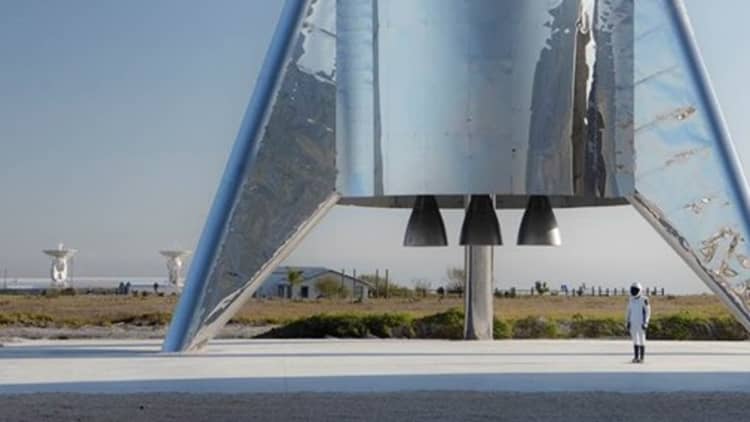
SpaceX quickly on Thursday passed another milestone in the development of its Raptor rocket engine, CEO Elon Musk said in a tweet.
"Raptor just achieved power level needed for Starship & Super Heavy," Musk said.
@elonmusk: Raptor just achieved power level needed for Starship & Super Heavy
Musk's tweet came three days after he said SpaceX had completed the first test-firing of a Raptor engine that is ready to fly. While SpaceX has test-fired prototype Raptor engines before, the recent tests represent the first of a "flight ready" engine. The development process for rocket engines typically starts with firing the engine in short bursts at partial power. Over time, the firings increase in duration and power until the engine is at or above the requirements needed to fly.
The Raptor engine is being built for the Starship rocket, which is designed to be a fully reusable launch system. SpaceX plans to use Starship to transport up to 100 people to Mars. The design of Starship requires an engine create "at least 170 metric tons of force," Musk said in another tweet. The engine surpassed that in Thursday's test and, when SpaceX switches from "warm propellant" to cryogenic propellant —meaning cooled to extremely low temperature — Musk estimates the Raptor engine will get 10 percent to 20 percent more power.
Raptor is the first methane-fueled rocket engine that SpaceX has developed. Blue Origin, the space company of Jeff Bezos, is also developing a large methane-fueled engine called BE-4. Blue Origin's engine will power the New Glenn rocket, as well as United Launch Alliance's Vulcan rocket.
SpaceX is building the Raptor engines at the company's headquarters in Hawthorne, California, and testing them at its facilities in McGregor, Texas. That follows the same development path as the Merlin rocket engines, which power SpaceX's Falcon series of rockets.
@elonmusk: At @SpaceX Texas with engineering team getting ready to fire new Raptor rocket engine
SpaceX is also building a prototype of the Starship rocket near Brownsville, Texas. The prototype Starship will use three Raptor engines for "hop" test flights, which are expected to begin in coming months.
The final version of Starship will have seven Raptor engines on board, while the "Super Heavy" booster that launches it will have 31 Raptor engines.


